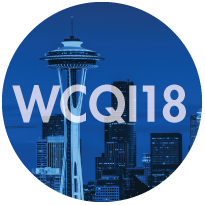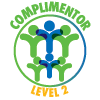The CMQ/OE BoK needs more focus on Organizational Studies, Kark Weick and Sensemaking
196 Posts
A big chunk of what quality does these days falls under the wider category of sensemaking as expressed in the work of Karl Weick and organizational studies. To be honest I continue to be surprised by the lack of focus on this body of work in our body of knowledge.
Sensemaking refers to the process of creating meaning out of the messy world around us. This activity is triggered when something in our environment seems to have changed. We then try to make sense of what has happened by collecting data, learning from others, and looking for patterns to create a new map of what is going on. From there, we experiment with new solutions to learn how the system responds.
In the increasingly competitive business landscape of today, organizations rely on massive amounts of data to monitor and analyze changes in their business environment. Quality professionals are often at the forefront of these activities by turning data into evidence that is capable of supporting decision-making. With rapid organizational and technological changes and given the growing amount of shared data and data availability, it goes without saying that business decisions must also rest on a sound understanding of this complexity, for which sensemaking is crucial. Sensemaking is an approach is suitable for continuously gaining an understanding of contemporary business environments and providing additional insights into decision-making processes. Sensemaking provides a useful theoretical lens for studying factors that influence organizations in their move toward informed decision-making.
My question for the forum. Why have we not better adopted this body of work? Any thoughts on how we can utilize it better moving forward?
Sensemaking refers to the process of creating meaning out of the messy world around us. This activity is triggered when something in our environment seems to have changed. We then try to make sense of what has happened by collecting data, learning from others, and looking for patterns to create a new map of what is going on. From there, we experiment with new solutions to learn how the system responds.
In the increasingly competitive business landscape of today, organizations rely on massive amounts of data to monitor and analyze changes in their business environment. Quality professionals are often at the forefront of these activities by turning data into evidence that is capable of supporting decision-making. With rapid organizational and technological changes and given the growing amount of shared data and data availability, it goes without saying that business decisions must also rest on a sound understanding of this complexity, for which sensemaking is crucial. Sensemaking is an approach is suitable for continuously gaining an understanding of contemporary business environments and providing additional insights into decision-making processes. Sensemaking provides a useful theoretical lens for studying factors that influence organizations in their move toward informed decision-making.
My question for the forum. Why have we not better adopted this body of work? Any thoughts on how we can utilize it better moving forward?
3 Replies
58 Posts
Jeremia,
I think your question is: “Why hasn’t Karl Weick’s sensemaking process made it into the Quality Management Body of Knowledge?” The short answer is it hasn’t become a mainstream quality management process. However, just because it isn’t a named tool doesn’t mean it doesn’t fit in the BOK under IV.A.4 Innovation and Creativity Tools, III.A.7 Knowledge management (KM) or III.A.2 Management Theories and Styles.
The long answer is the Quality Management Body of Knowledge development process starts with a Job Analysis Survey sent to several hundred practicing quality management and organizational excellence professionals. The survey revolves around the knowledge they are required to have in order to perform their current duties. The answers are compiled, and the BOK is drafted by several teams of additional quality management professionals through a series of workshops. The output reflects what is considered a consensus of current quality management practices by practicing quality management professionals. There have been 6 revisions and thousands of professionals that have contributed to the BOK over the past 25 years.
The Quality Management Body of Knowledge is considered mainstream practice. The way a concept or tool becomes mainstream is through discussions such as this. If it’s use catches on with quality management professionals then is should make it into the BOK. I think the “sensemaking” process has its place in the Quality Management Body of Knowledge. It isn’t called out by name in the subtext as with many of the more obscure concepts and tools. The sensmaking process may also be a good fit in other ASQ technical community bodies of knowledge.
I’m interested to read other thoughts on this. Is “sensemaking” a common practice with quality management professionals? I personally do not use it, but it seems to have a lot in common with the Toyota Kata that I use daily (not mentioned in the quality management BOK either). Are there other principles and concepts missing from the quality management body of knowledge? Are there any other cutting edge or emerging practices used by the Quality Managers out there?
Regards,
Jerry
I think your question is: “Why hasn’t Karl Weick’s sensemaking process made it into the Quality Management Body of Knowledge?” The short answer is it hasn’t become a mainstream quality management process. However, just because it isn’t a named tool doesn’t mean it doesn’t fit in the BOK under IV.A.4 Innovation and Creativity Tools, III.A.7 Knowledge management (KM) or III.A.2 Management Theories and Styles.
The long answer is the Quality Management Body of Knowledge development process starts with a Job Analysis Survey sent to several hundred practicing quality management and organizational excellence professionals. The survey revolves around the knowledge they are required to have in order to perform their current duties. The answers are compiled, and the BOK is drafted by several teams of additional quality management professionals through a series of workshops. The output reflects what is considered a consensus of current quality management practices by practicing quality management professionals. There have been 6 revisions and thousands of professionals that have contributed to the BOK over the past 25 years.
The Quality Management Body of Knowledge is considered mainstream practice. The way a concept or tool becomes mainstream is through discussions such as this. If it’s use catches on with quality management professionals then is should make it into the BOK. I think the “sensemaking” process has its place in the Quality Management Body of Knowledge. It isn’t called out by name in the subtext as with many of the more obscure concepts and tools. The sensmaking process may also be a good fit in other ASQ technical community bodies of knowledge.
I’m interested to read other thoughts on this. Is “sensemaking” a common practice with quality management professionals? I personally do not use it, but it seems to have a lot in common with the Toyota Kata that I use daily (not mentioned in the quality management BOK either). Are there other principles and concepts missing from the quality management body of knowledge? Are there any other cutting edge or emerging practices used by the Quality Managers out there?
Regards,
Jerry
111 Posts
Jerry gives an excellent explanation of the process by which new concepts are added to the Quality Management Body of Knowledge. Thank you. I would take his comments to another level. Considering that the survey of quality managers goes out to those who are already Certified in CMQ/OE, a good way to get the Sensemaking terminology into the BoK is to put the terms in front of the survey audience. Two vehicles come to mind immediately. The Quality Management Forum and Quality Progress. The Quality Management Forum is the peer reviewed journal for the Division. This is a targeted communication vehicle for most of the recipients of the BoK survey that is administered every 6 years. I suggest that Jeremiah submit a paper describing the concept and how it relates to and advances the concepts in current use by quality management practitioners. The more we can get new terminology in front of this audience, the sooner the concepts will be understood and used. I know several quality leaders who are already using the Sensemaking approach. Division leaders in Statistics (Byron Mattingly), Metrology (Tom Pearson), and Quality Management (Jeremiah Genest and Grace Duffy) have presented papers at BOSCON and WCQI for at least the last 4 years.
Organizational Design in a fast paced environment needs the Agile approach for continuous assessment of external influences to current business processes. The ability to "sense" sea changes in competitive market places is one way to stay ahead of the curve. When the world moved more slowly, we could afford to set our core processes on autopilot for 5 years at a time. No more.
The QMD Forum published another excellent article on Knowledge Management supporting the Sensemaking idea without using the term in the Summer 2019 edition. Tom Pearson has worked with what we now call Agile systems since at least 1999. I agree with Jerry Rice, current QMD Chair. The more we talk about these important approaches, the faster they get into our current language.
Attached files
62 Posts
Dear Friends,
I think that this conversation is MOST fruitful. Karl Weick is an exceptional thinker and the two topics that should be thought about by the QM community are situational awareness (I call this the "Spiderman sense" that something is wrong - it occurs before you can identify a problem and is part of what Weick calls "noticing"). Also, his sensemaking process is similar in thinking structure and style to the initial phases of scientific inquiry before a research hypothesis can be adequately formulated. Including these thoughts of a social psychologist at the front-end of structured problem-solving or strategic planning makes a lot of sense (sorry for that pun). In my doctoral dissertation, I cited the work by Karl Weick as one of the "thinking pathways" that is developing the next level of quality thinking. If anyone is really interested, please send me an email (greg@excellence.fi) and I will send a PDF of the dissertation!
Best regards,
Greg
I think that this conversation is MOST fruitful. Karl Weick is an exceptional thinker and the two topics that should be thought about by the QM community are situational awareness (I call this the "Spiderman sense" that something is wrong - it occurs before you can identify a problem and is part of what Weick calls "noticing"). Also, his sensemaking process is similar in thinking structure and style to the initial phases of scientific inquiry before a research hypothesis can be adequately formulated. Including these thoughts of a social psychologist at the front-end of structured problem-solving or strategic planning makes a lot of sense (sorry for that pun). In my doctoral dissertation, I cited the work by Karl Weick as one of the "thinking pathways" that is developing the next level of quality thinking. If anyone is really interested, please send me an email (greg@excellence.fi) and I will send a PDF of the dissertation!
Best regards,
Greg
File Attachments
|
|









